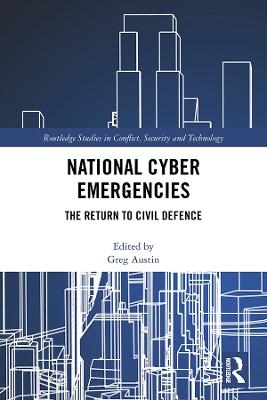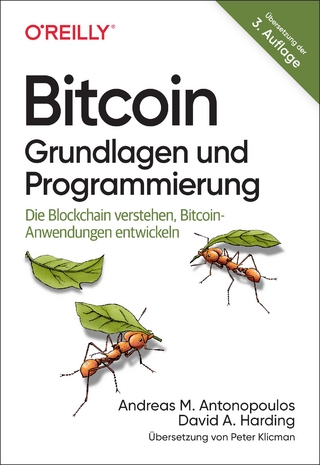
National Cyber Emergencies
Routledge (Verlag)
978-0-367-36034-4 (ISBN)
The volume analyses the escalating sense of crisis around state-sponsored cyber attacks that has emerged since 2015, when the United States first declared a national emergency in cyberspace. It documents a shift in thinking in the USA, from cooperative resilience-oriented approaches at national level to more highly regulated, state-led civil defence initiatives. Although the American response has been mirrored in other countries, the shift is far from universal. Civil defence strategies have come into play but the global experience of that has not been consistent or even that successful. Containing contributions from well-placed scholars and practitioners, this volume reviews a selection of national experiences (from the USA, Australia, India, China, Estonia, and Finland) and a number of key thematic issues (information weapons, alliance coordination, and attack simulations). These demonstrate a disconnect between the deepening sense of vulnerability and the availability of viable solutions at the national level. Awareness of this gap may ultimately lead to more internationally oriented cooperation, but the trend for now appears to be more conflictual and rooted in a growing sense of insecurity.
This book will be of much interest to students of cyber security, homeland security, disaster management, and international relations, as well as practitioners and policy-makers.
Greg Austin is the Senior Fellow for Cyber, Space and Future Conflict at the International Institute for Strategic Studies and a Professor of Cyber Security, Strategy and Diplomacy at UNSW Canberra, Australia.
Introduction Greg Austin 1. From Cyber Resilience to Civil Defence: Contested Concepts, Elusive Goals Greg Austin and Munish Sharma 2. U.S. Policy: From Cyber Incidents to National Emergencies Greg Austin 3. India and China: Warnings Ignored Munish Sharma 4. Civil Defence and Cyber Security: A European Perspective Eneken Tikk 5. National Cyber Emergency Policy for Australia: Critical Infrastructure Gary Waters 6. Mind the Gap: Western Military Theory of Victory vs Cyber Attack Lior Tabansky 7. Weaponised Information Systems for Political Disruption Kevin Desouza and Atif Ahmad 8. Dezinformatsiya: Recognising the National Cyber Emergency in Australia Chris Dufour, Timothy Newberry and Rachel Azafrani 9. Alliance Attribution of Global Cyber Attacks: The European Union Siim Alatalu 10. Preparing for the Cyber Storm: A Survey of Simulation Sylvain Leblanc and Taylor Perkins 11. Wargaming National Cyber Emergencies John Curry 12. Enhancing Strategic Level Wargaming with Artificial Intelligence Jim Q. Chen 13. Design It, Build It, Defend It–Using Cyber Exercises in the Education of Cyber Forces G. Scott Knight, Sylvain Leblanc, Erich Devendorf, and Mike Shuck
| Erscheinungsdatum | 03.02.2020 |
|---|---|
| Reihe/Serie | Routledge Studies in Conflict, Security and Technology |
| Zusatzinfo | 4 Tables, black and white; 7 Line drawings, black and white; 7 Illustrations, black and white |
| Verlagsort | London |
| Sprache | englisch |
| Maße | 156 x 234 mm |
| Gewicht | 540 g |
| Themenwelt | Informatik ► Netzwerke ► Sicherheit / Firewall |
| Sozialwissenschaften ► Politik / Verwaltung ► Europäische / Internationale Politik | |
| ISBN-10 | 0-367-36034-9 / 0367360349 |
| ISBN-13 | 978-0-367-36034-4 / 9780367360344 |
| Zustand | Neuware |
| Informationen gemäß Produktsicherheitsverordnung (GPSR) | |
| Haben Sie eine Frage zum Produkt? |
aus dem Bereich


